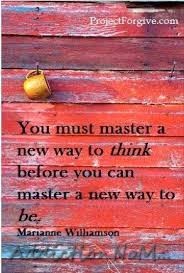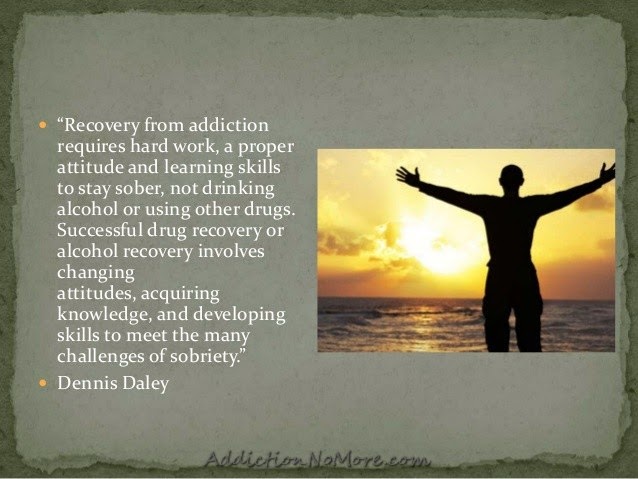Recovery from addiction
(If you or a loved one needs help in recovery, please contact us at 1-800-513-5423 www.drugrehabservices.com)
Although millions of individuals and family members who are “in recovery” know what “recovery” means to them and how important it is in their lives, up until relatively recently there was no formal, accepted definition of recovery.
For the general public and for those who research, evaluate, and develop policies about alcoholism and drug addiction, recovery is a concept that can sometimes seem unclear. Even worse, to the general public, the term “recovery” is seen as “someone who is trying to stop using alcohol or other drugs.” Clearly, it’s time for a change.
Essentially, recovery from alcoholism and drug addiction is a complex and dynamic process encompassing all the positive benefits to physical, mental and social health that can happen when people with an addiction to alcohol or drugs, or their family members, get the help they need.
Recently (November 2014), the Alcohol Research Group at the Public Health Institute posted its definition of recovery. According to the Group, "Recovery is a goal of alcohol treatment, and recovery-oriented systems of care are being developed to support that goal. Alcoholics who no longer drink, and are trying to pursue an improved way of living/being, say that they are 'in recovery.'" Click here to download "What is Recovery?"
Prior to this latest update, there were two major efforts to develop a definition for recovery. Here is a quick overview of the findings and suggested definitions:
In 2007, according to the Betty Ford Institute Consensus Panel, What Is Recovery?:
“Recovery from substance dependence is a voluntarily maintained lifestyle characterized by sobriety, personal health, and citizenship.”
In 2005, the Substance Abuse and Mental Health Services Administration (SAMHSA) offered the following Working Definition of Recovery:
“Recovery from alcohol and drug problems is a process of change through which an individual achieves abstinence and improved health, wellness and quality of life.”
Expanding on this definition, SAMHSA articulated twelve “Guiding Principles of Recovery”:
There are many pathways to recovery.
Recovery is self-directed and empowering.
Recovery involves a personal recognition of the need for change and transformation.
Recovery is holistic.
Recovery has cultural dimensions.
Recovery exists on a continuum of improved health and wellness.
Recovery is supported by peers and allies.
Recovery emerges from hope and gratitude.
Recovery involves a process of healing and self-redefinition.
Recovery involves addressing discrimination and transcending shame and stigma.
Recovery involves (re)joining and (re)building a life in the community.
Recovery is a reality. It can, will, and does happen.
In May 2011, a SAMHSA blog posting released Recovery Defined: A Unified Working Definition and Set of Principles that reflects SAMHSA’s move into a “behavioral health definition” of recovery that is inclusive of both addiction to alcohol and drugs as well as mental health recovery.
SAMHSA Working Definition of Recovery:
“Recovery is a process of change whereby individuals work to improve their own health and wellness and to live a meaningful life in a community of their choice while striving to achieve their full potential.”
SAMHSA Principles of Recovery
Person-driven;
Occurs via many pathways;
Is holistic;
Is supported by peers;
Is supported through relationships;
Is culturally-based and influenced;
Is supported by addressing trauma;
Involves individual, family, and community strengths and responsibility;
Is based on respect; and
Emerges from hope.
Four Major Domains That Support Recovery--SAMHSA’s Recovery Support Initiative:
Health: Overcoming or managing one’s disease(s) as well as living in a physically and emotionally healthy way;
Home: A stable and safe place to live that supports recovery;
Purpose: Meaningful daily activities, such as a job, school, volunteerism, family caretaking, or creative endeavors, and the independence, income and resources to participate in society; and
Community: Relationships and social networks that provide support, friendship, love, and hope.
*information found on https://ncadd.org/recovery-support/definition
"Recovery from addiction requires hard work, a proper attitude and learning skills to stay sober, not drinking alcohol or using other drugs. Successful drug recovery or alcohol recovery involves changing attitudes, acquiring knowledge, and developing skills to meet the many challenges of sobriety." Dennis Daley
.jpg)
.jpg)
.jpg)